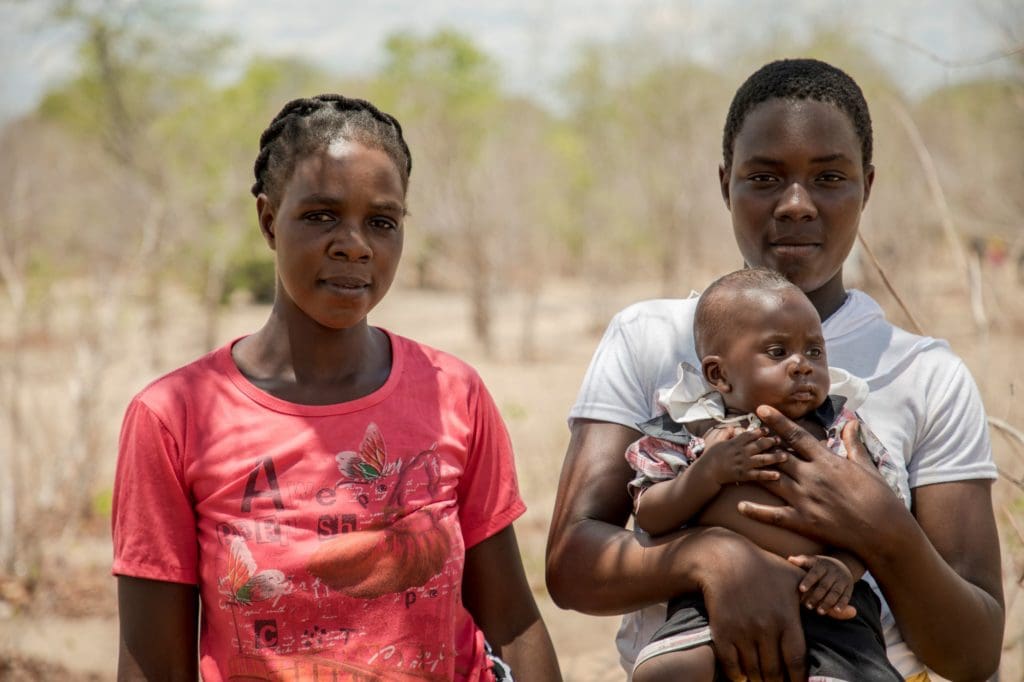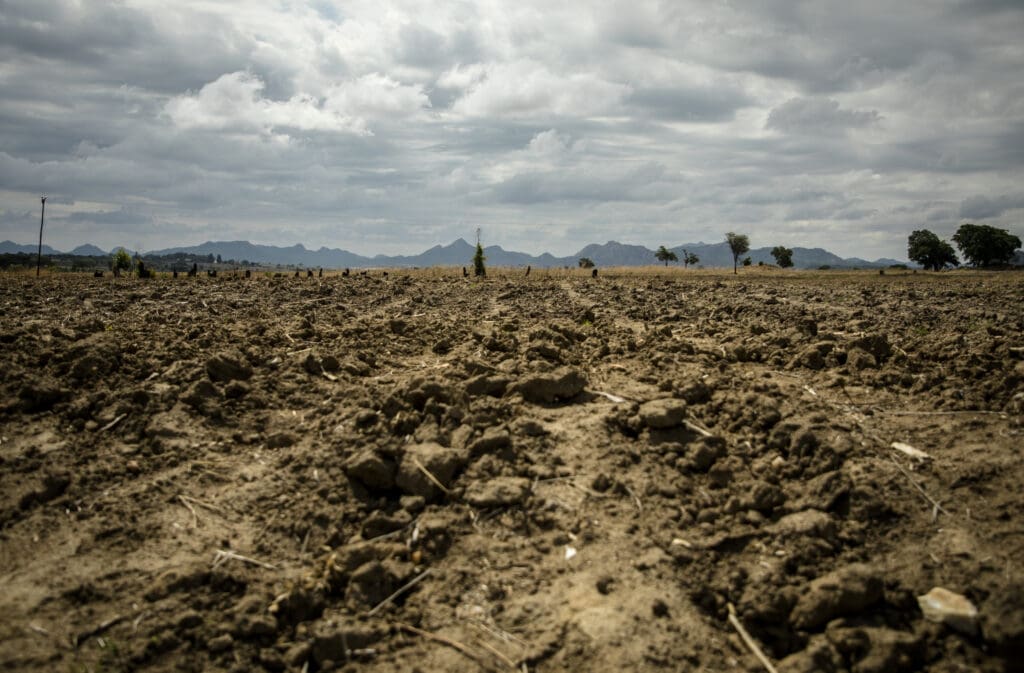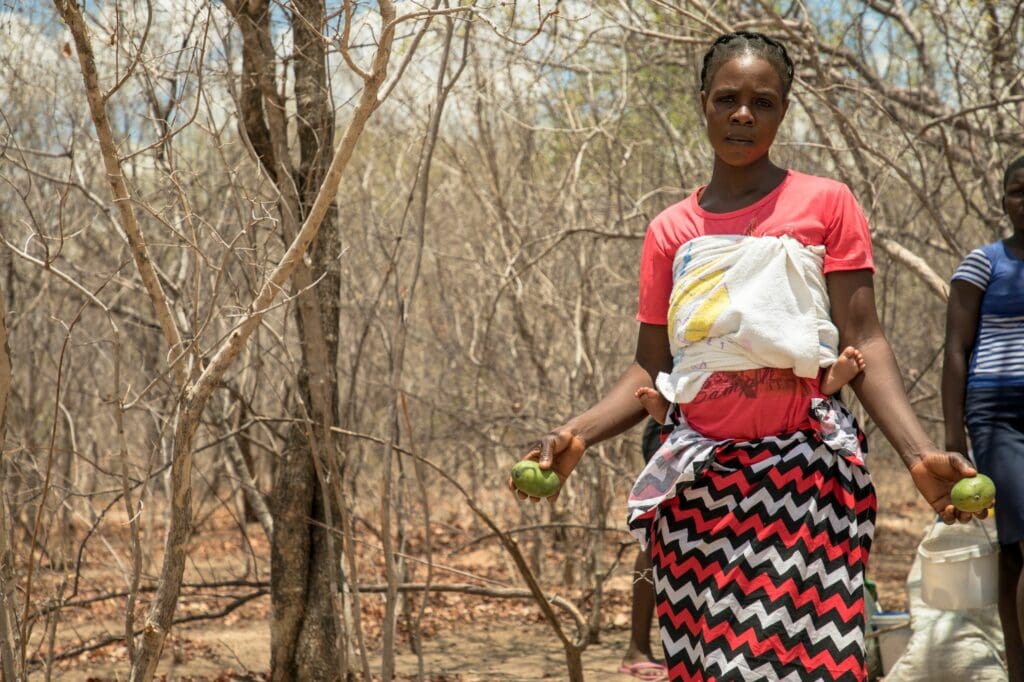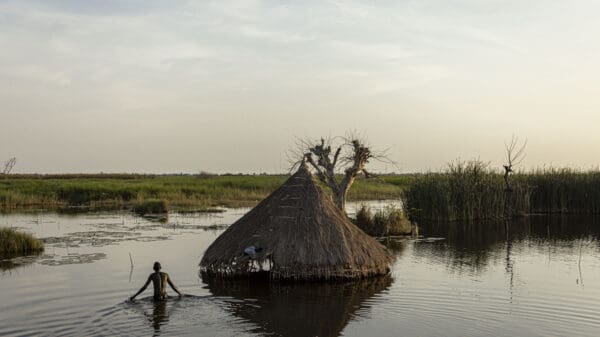Hunger and Domestic Violence: How Today’s Food Aid Builds Dams, Fills Bellies & Empowers Women

Violence against women and girls is still one of the most widespread, persistent and devastating human rights violations in our world today and remains largely unreported due to the silence, stigma and shame surrounding it. Sadly, since the outbreak of COVID-19, all types of violence against women and girls – particularly domestic violence – have intensified in what the United Nations is calling a Shadow Pandemic.
As the fight continues, we’re revisiting this story of how our Food for Assets program helped one woman in Zimbabwe overcome her own struggle with domestic violence.
“Food security isn’t just about a full belly.”
– Patience Mauhura, Zimbabwe, mother of six
Patience knows too well what can happen when families run out of food. For her, a food shortage at home caused her husband to become violent.
“One day I told my husband that we didn’t have food and that we had no money to send the kids to school. I asked him what we were going to do. That’s when the violence started.”
Then, in 2018, Patience’s life turned around: She joined the United Nations World Food Programme’s (WFP) Food for Assets (FFA) project in the town of Mazambara, Zimbabwe. As part of the FFA project, members of the local community work to rehabilitate or build local infrastructure in exchange for food. In Mbire, participants of the U.N. World Food Programme’s FAA program are building a dam – digging trenches and carrying stones – to cope with the ongoing drought. In exchange, each participant receives 120 pounds of sorghum, 25 pounds of cow peas and 1 gallon of vegetable oil every month.

Thousands of acres of corn fields in Zimbabwe have turned to dry dirt.
This community-centered approach has extra benefits, like promoting nutrition, gender equality and social protection. The project includes trainings on how to grow small agriculture or livestock businesses. For example, participants learn how to raise goats and chickens and how to find markets to sell them.
Patience says she has become “a jack-of-all-trades,” thanks to the training she’s received.
“I collect baobab fruits and go across the border into Zambia, where I sell them. With the money, I buy soap in Zambia and sell it back here in Zimbabwe. Today, I brought a box of soap and everything was sold in one day! I also run a little shop where I sell small baobab trees.”

Patience picks baobab fruit with her 4-month-old son tied to her waist.
It sounds like a lot for one person to be doing, but Patience loves it. “Entrepreneurship is in my blood, but I learned how to do it in practice through the U.N. World Food Programme project.”
Her next goal? “To get a passport and travel the region, to buy items and sell them.”
But Patience’s participation in the FFA project has done more than nurture her inner entrepreneur. She no longer faces violence at home.
“I don’t think it will happen again,” Patience says of her husband’s domestic abuse. “He’s a different man now.” In her view, this is a direct result of her family’s improved food situation. “When we started receiving assistance from the U.N. World Food Programme, the situation improved. My husband got more work, and so did I, through the project.”
“I believe there is less gender-based violence at home when the family has enough food,” she adds. “I myself am a testimony to that.”
There are millions of women like Patience across Zimbabwe. The country is currently facing a hunger emergency driven by climate change and made worse by economic collapse. Families are suffering through cyclones, the worst drought in decades and the highest inflation rate in the world. Today, 7.7 million Zimbabweans—half the population—are hungry. There are fuel shortages, widespread poverty, a lack of clean drinking water and power outages.
Patience says there is still a lot to be hopeful for, though.
“The U.N. World Food Programme is empowering us. We are sending our kids to school. Our kids are the future. They will be our doctors, the next presidents.”

And she believes other women have the ability to create positive change.
“I want to urge each and every woman in Zimbabwe to think outside the box. We must use our hands and our brains. Don’t wait around for your husbands to find a solution. It is time to work hard.”
TheU.N. World Food Programme’s FFA programs empower communities to work together to build their way out of hunger, and Patience is making the most of this opportunity.
“The best thing I received from the U.N. World Food Programme is the knowledge I now have. I have learned life skills and am proud of what I have achieved so far,” she says. “This is why for me, the U.N. World Food Programme means women’s empowerment.”




